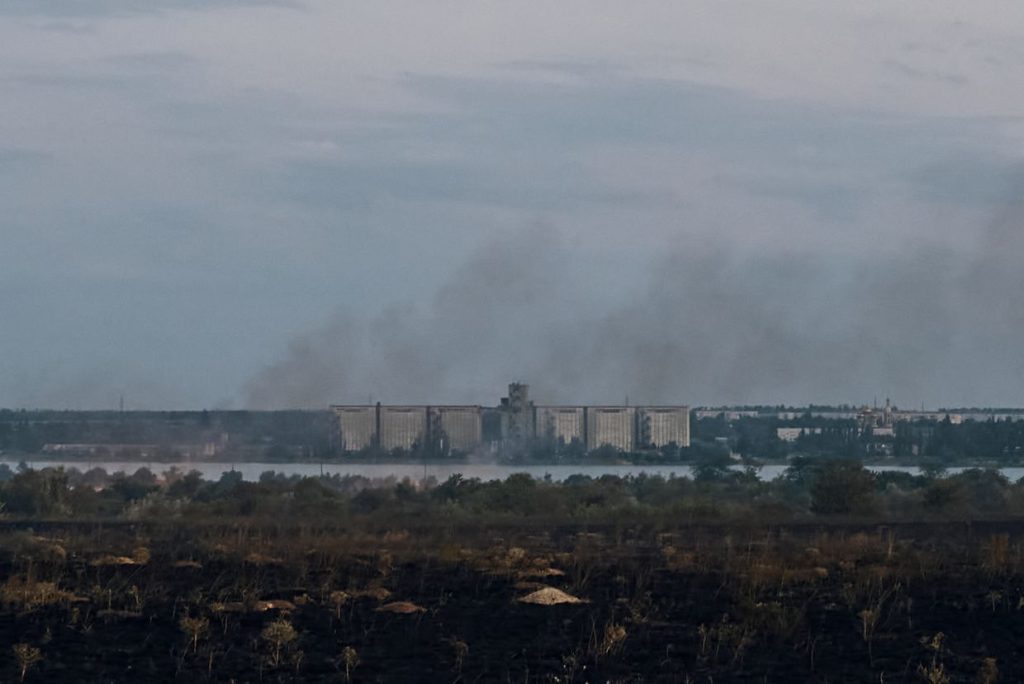The Ukrainian town of Kurakhove in Donetsk Oblast is facing a Russian advance from three directions, but the progress of the troops has slowed down, according to Nazar Voitenkov, an acting spokesperson for Ukraine’s 33rd Separate Mechanized Brigade. Situated to the west of Russian-occupied Donetsk and approximately 30 km from Pokrovsk, Kurakhove is a key location in the front of Donetsk Oblast. Voitenkov mentioned that if Russia were to capture Kurakhove, it could gain access to strategically important areas overlooking the town. Despite Russian attempts to advance, Voitenkov stated that they have been largely unsuccessful in the direction of his unit.
In comparison to the Pokrovsk and Vuhledar sectors, Kurakhove is considered to be located more towards the rear, according to the DeepState monitoring service. While signs of stabilization have been observed near Pokrovsk, which is the main focus of the Russian offensive in Donetsk Oblast, there has been an escalation in Russian attacks near Vuhledar. Voitenkov noted that preparations for defense are underway in Kurakhove, with trenches, anti-tank ditches, and potential strongholds being established to prevent Russian forces from advancing to other settlements. The town is taking measures to fortify its defenses against potential Russian incursions.
Governor Vadym Filashkin reported that Russian attacks have disrupted gas and water supplies to the town of Pokrovsk in Donetsk Oblast. This further exacerbates the humanitarian situation in the region, as essential services are being interrupted due to the ongoing conflict. The cutoff of vital resources like gas and water adds to the challenges faced by the local population and further highlights the impact of the Russian offensive in the area.
The situation in Donetsk Oblast remains tense, with ongoing Russian advances and attacks impacting various towns and cities in the region. The Ukrainian military, along with local authorities, are working to strengthen defenses and mitigate the effects of the conflict on civilian populations. The escalation of hostilities in Kurakhove and other areas demonstrates the volatility of the situation and the challenges faced by those living in conflict-affected regions. As the conflict continues, efforts are being made to protect civilians and prevent further escalation of violence in the region.
The Russian offensive in Donetsk Oblast has raised concerns among international observers and stakeholders, who are closely monitoring the situation and calling for a de-escalation of hostilities. The impact of the conflict on civilian infrastructure, including essential services like gas and water supplies, underscores the urgent need for a peaceful resolution to the crisis. The humanitarian consequences of the conflict are significant, with civilians bearing the brunt of the violence and displacement. Efforts to address the root causes of the conflict and achieve a lasting peace in the region are essential to ensure the well-being of the civilian population and stabilize the situation in Donetsk Oblast.
Overall, the Russian advance in Donetsk Oblast, particularly in towns like Kurakhove and Pokrovsk, represents a significant threat to the security and stability of the region. The ongoing conflict has resulted in disruptions to essential services and has created a challenging environment for civilians living in the affected areas. As efforts continue to address the humanitarian and security challenges posed by the conflict, international support and diplomatic initiatives are crucial in finding a sustainable solution to the crisis. The situation in Donetsk Oblast underscores the importance of ensuring the protection of civilians and creating conditions for lasting peace and stability in the region.


